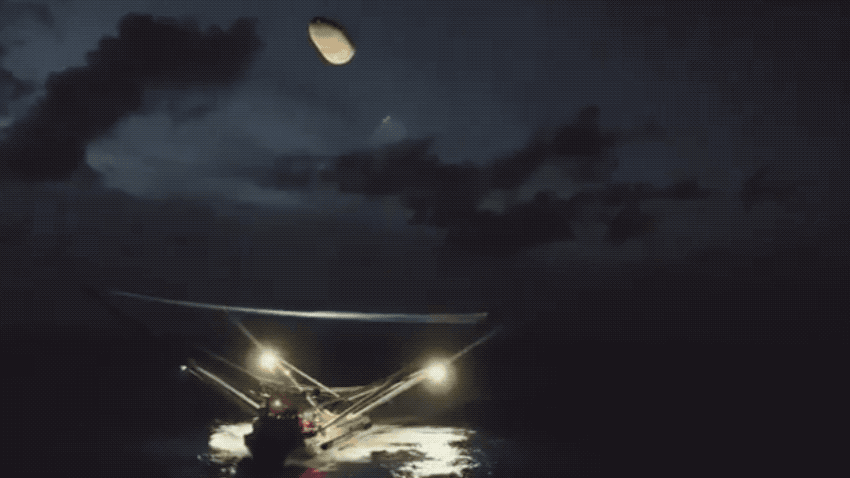SpaceX successfully launches twice-flown Falcon 9, catches fairing at sea
SpaceX successfully launched a Falcon 9 first-stage that had previously served two missions in July and November of 2018, today carrying its final payload, the AMOS-17 satellite for Spacecomm. SpaceX had configured the Falcon 9 in its 'expendable mode' for this mission, which means it made use of all available fuel on board to carry the 14,000+ lb satellite to orbit, without enough left over to come back in a controlled descent and landing.
A service life of three full missions is nothing to sneeze at, however, and definitely helps SpaceX save some costs on each of the missions flown by this flight-proven rocket booster. Meanwhile, everything looks to have gone to plan in terms of the AMOS-17 mission parameters, too. The multi-purpose geostationary communications satellite, which will provide mobile, streaming and video connectivity across parts of the Middle East, Africa, and Europe, reached geostationary transfer orbit and then reached its target orbit and deployed as planned.
SpaceX also recovered at least the fairing used to protect the cargo as it ascends to space tonight -it managed to catch one half in a giant net strung across support structures on 'Ms. Tree,' a ship operated by SpaceX specifically for this purpose. The other half fell into the ocean, and SpaceX will try to collect that half as well, using a second ship it has for that purpose.
SpaceX has recovered a fairing half using the net mounted on 'Ms. Tree' previously - it caught a fairing used in its last Falcon Heavy launch in June.
SpaceX records another first for reusable rocketry by catching Falcon Heavy fairing with a boat
